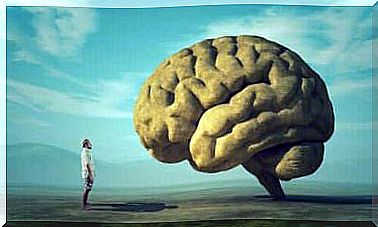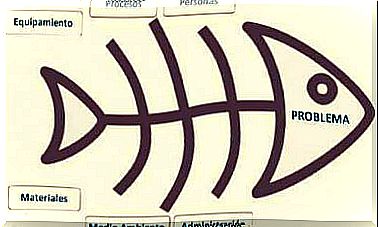How Far Can We Change Our Personality?

How many times have we heard someone explain that they cannot change because “that’s the way it is”? How many times have you felt that you cannot act differently because there are certain tendencies within you? In all these cases, we are talking about our personality: the set of characteristics that define us and make us unique. But…to what extent can we change our personality?
Personality is not something completely defined by our genes. Thanks to this we can intervene and make changes. In fact, if you do a little exercise yourself and look back, you will find that you have retained parts of your personality and some have not. Maybe now you’re kinder or more skittish, more organized or messier, more melancholy or braver, etc.
That’s why, and since it’s such an important concept in psychology, in this article we’ll talk about what personality is and how we can consciously influence the changes that occur in it.
What is personality?
There are several definitions of personality, many in fact. However, most agree that personality is a psychological construct that refers to the “set of traits (psychic characteristics) that an individual has that determine their tendencies in behavior, thought and emotion.
Within the personality traits that exist, we can find two types: temperament traits and character traits. While temperament traits are behavioral tendencies that have a greater genetic and biological load (we are born with these characteristics), the definition or realization of character traits would actually be the result of the interaction between the person and the environment. .

Briefly, within the set of temperament traits we find some that are basic and universal such as Sensation Pursuit, Risk Avoidance, Impulsiveness, Activity and Persistence. And, on the other hand, in the set of character traits are Self-direction (confidence and ability to direct behavior towards goals important to oneself), Cooperation and Transcendence (taste for the aesthetic and spiritual).
All of these traits, both temperament and character, shape personality and set us apart from others. In other words, all people have these traits and we differ depending on how marked one trait is or another. In psychology, technically, we don’t say that someone doesn’t have impulsiveness or that they have persistence. We prefer to say someone has a low impulsivity or a high persistence because traits are gradual concepts.
Can we change our personality?
The answer is very clear: yes. We can change our personality and, in addition, we can influence the direction and degree we want to achieve this transformation. Although a part of the personality is inherited, it is not a definitive genetic configuration, as in the case of some syndromes (for example: Fragile X Syndrome or Down Syndrome). And, as personality is one of the filters we use to relate to the world and as the world is a changing environment, it is a system that has the possibility of change.
Character traits are easier to change: the genetic influence on them is less and they were developed (mostly) in interaction with the environment. When, in theory, a change of temperamental traits is sought, such as impulsiveness, the person tends to feel greater resistance to change. However, with perseverance and dedication, in many cases positive results are obtained.
Even when it comes to an older person, changing the personality is possible. What usually happens is that the older a person is, the more resistance to change usually exists. What is sought is to change the way of being, the way we identify and recognize ourselves. The same one that was “cooked” over a slow fire for years.
For this reason, the person often avoids changing some personality traits and puts the reason on age or on the fact that “it is like this and it has always been like this throughout life”. But these are excuses! Changing personality is possible, regardless of age. And the limits of these changes are set by the person himself. That said, now the big question is: how can we change our personality?
How can we change our personality?
To be able to observe changes in the personality, a deep and constant psychological work is necessary . First, it is imperative that the person really wants to change. And secondly, small, day-to-day changes need to be made in the short term.
The changes that are lasting and positive are the ones that are “slow-fired”. If you set out to change your personality overnight because the way you are brings problems for you, I’m sorry to say that your mission has already failed, just based on that plan. You’re going to hit a wall, and on the other hand, if you get any change (because sometimes miracles happen), chances are you’ll get back to starting position in a short time.

Remember: you need time for your psychological system to restructure and learn to function differently. You need to identify which traits you want to change and in what everyday behaviors those traits show up. I recommend that you make a list of everything you want to change and get to work on the changes that are less central to you or that you think will cost less. Usually one is associated with the other.
In order to change our personality, it is also necessary to be able to propose an objective evaluation of that change. In other words, in addition to identifying the traits you want to change, the ideal is to establish some references to “measure” this change. For example, if the trait to change is impulsiveness, you need to know how to tell if you are less impulsive or impulsive. And a possible “measurement” for this is you being able to count to ten before responding when you’re angry.
If we have personality traits that we don’t like or that get us into trouble, it’s best to see a psychologist. Furthermore, if you have any doubts after reading this article, it will be the psychologist who, taking into account your personal characteristics, can better explain how to change your personality.








